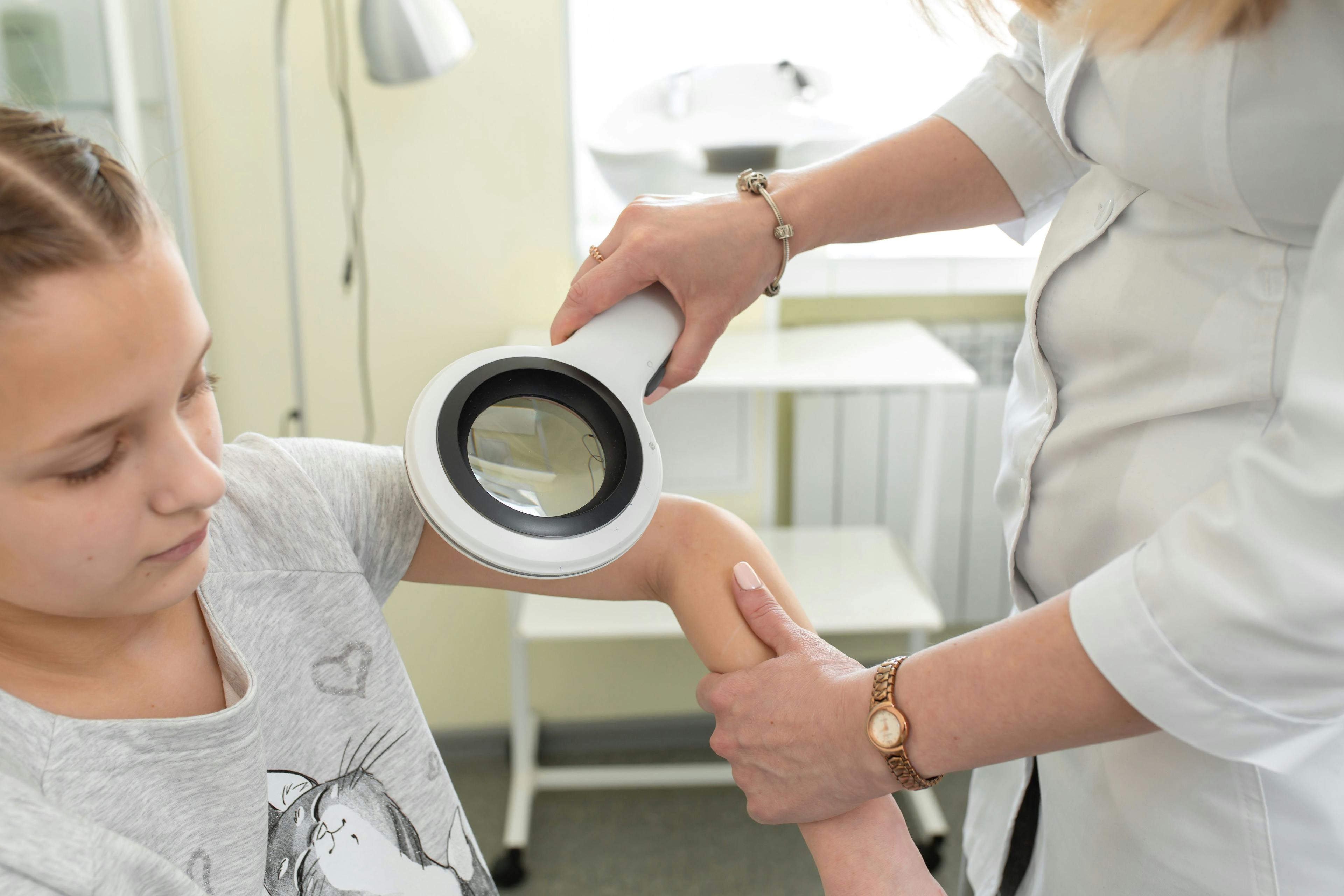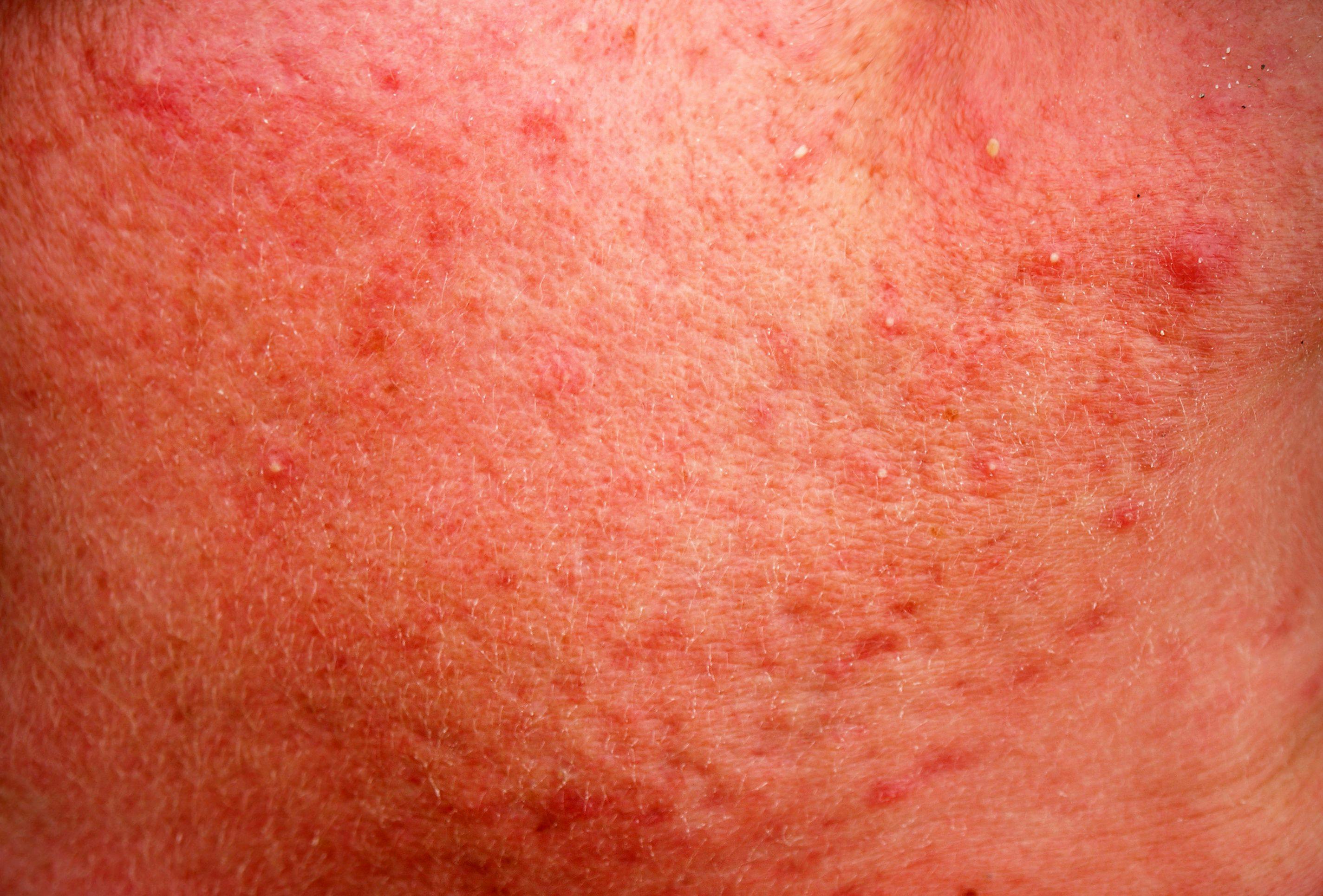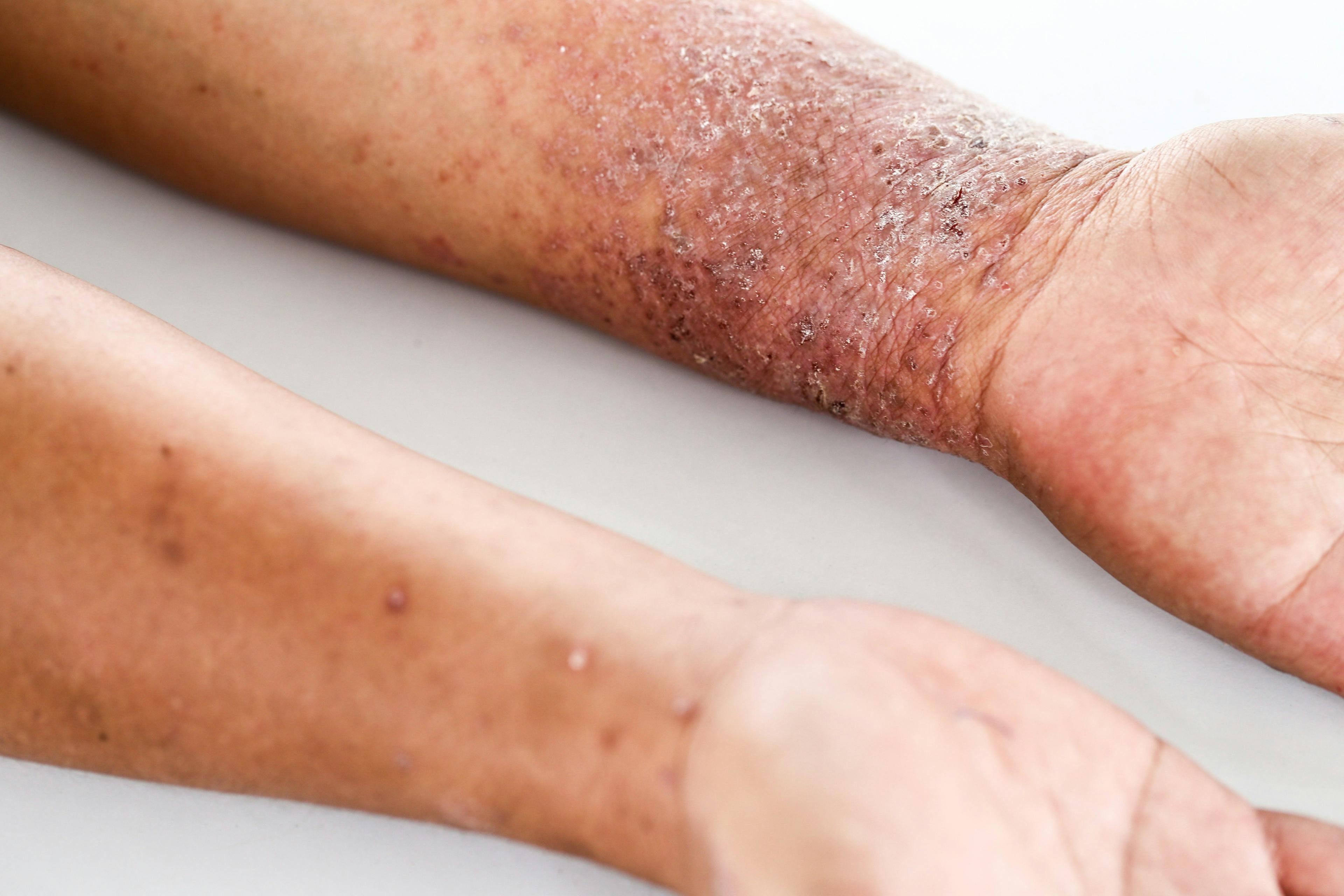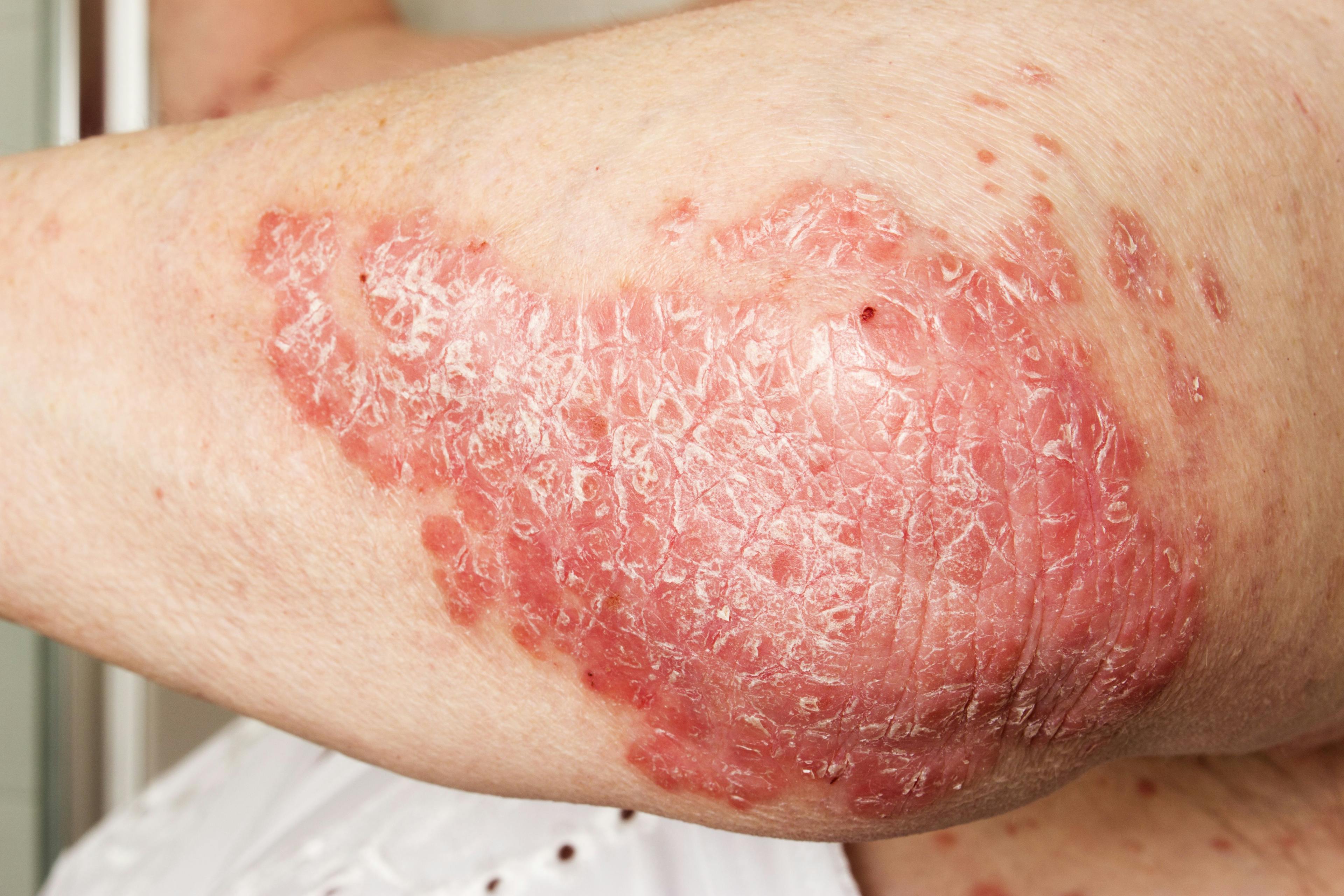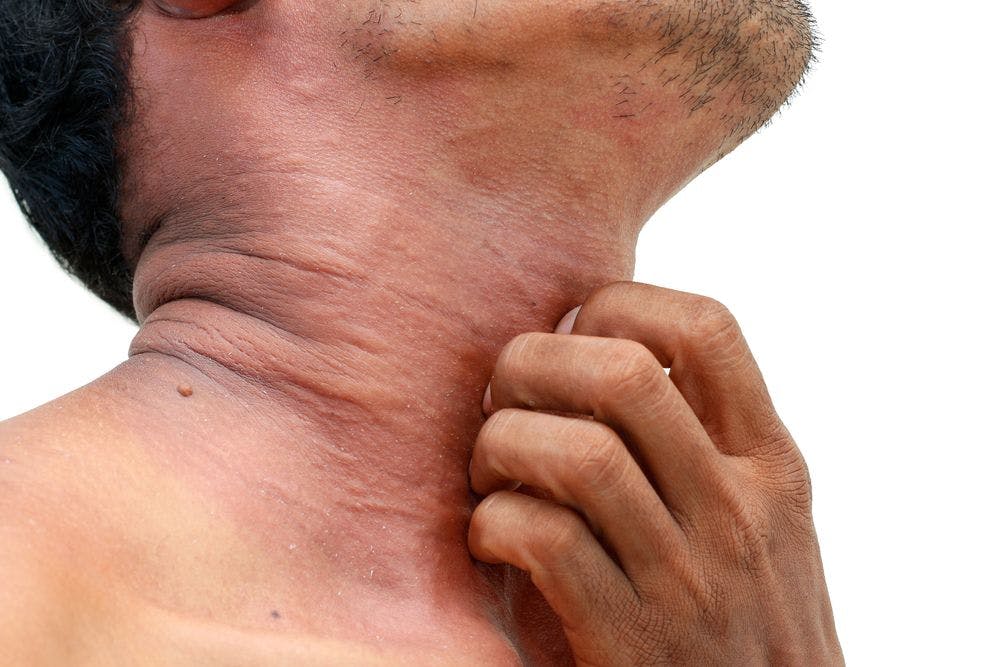- Acne
- Actinic Keratosis
- Aesthetics
- Alopecia
- Atopic Dermatitis
- Buy-and-Bill
- COVID-19
- Case-Based Roundtable
- Chronic Hand Eczema
- Chronic Spontaneous Urticaria
- Drug Watch
- Eczema
- General Dermatology
- Hidradenitis Suppurativa
- Melasma
- NP and PA
- Pediatric Dermatology
- Pigmentary Disorders
- Practice Management
- Precision Medicine and Biologics
- Prurigo Nodularis
- Psoriasis
- Psoriatic Arthritis
- Rare Disease
- Rosacea
- Skin Cancer
- Vitiligo
- Wound Care
Publication
Article
Dermatology Times
Sebaceous Gland is Target for Acne Treatments
Author(s):
Recently approved treatments for acne are focused on decreasing activity within the sebaceous gland.
Dermatologists are starting 2021 with an array of new acne treatments focused on a particular area that may change the way they treat patients: the sebaceous gland.
“Looking forward, the focus in 2021 will be more on the activity of the sebaceous gland, itself,” said Joshua Zeichner, MD, director of Cosmetic & Clinical Research in Dermatology at Mount Sinai Hospital in New York City, New York.
The FDA recently approved clascoterone cream 1% (Winlevi; Cassiopea), which inhibits sebaceous gland activity and decreases sebum production. Clascoterone is the first topical to specifically address oil production in acne.1 According to Zeichner, topical acne medications up until now have addressed the other key pathogenic factors for acne, including acne-causing bacteria, hyperkeratinization, and inflammation.
“The only medication we have that addresses all 4 of the main acne pathogenic factors is oral isotretinoin, commonly referred to as Accutane,” said Zeichner. “This new topical is a great addition to the armamentarium of drugs that we have for our patients by working to decrease sebum production. In clinical trials, the drug was very well tolerated, and this is a topical medication that can be used for a wide variety of patients with acne.”
According to Emmy Graber, MD, MBA, president and founder of The Dermatology Institute of Boston and affiliate clinical instructor of Dermatology at Northeastern University, both in Massachusetts, there has been a shift away from the broad-spectrum antibiotics and more focus on using narrow-spectrum antibiotics, such as hormonal agents, like spironolactone or oral contraceptives for female acne. These may also be prescribed for patients with a lower threshold for oral isotretinoin.
“We have taken a more critical look at some of the broad-spectrum antibiotics that we typically use, like tetracycline, doxycycline, minocycline, and have started to call into question if these are the type of antibiotics that we should be using,” said Graber. “In the past 3 to 5 years, we have really taken a close look at how we might be affecting not only patients’ acne but also their gastrointestinal tract and gut health when using broad-spectrum antibiotics.”
Graber says that sarecycline (Seysara, Almirall), a novel tetracycline derivative, shows more specificity for microorganisms on the skin and fewer microorganisms in the gut.
“It is specifically approved only for acne treatment and not for treating infections. The drug is extremely well tolerated and does not exert the same type of photosensitivity, vestibular, or GI adverse effects that some of the other tetracycline antibiotics have,” Graber added.
Some of the new topical alternatives help prevent adverse effects known to occur with similar oral agents. According to Graber, clascoterone is one example.
“Topical clascoterone acts similarly to oral spironolactone but in a topical version...there is almost no systemic absorption, and clascoterone bypasses some of the traditional adverse effects of oral spironolactone,” she said.
It has been more than a year since the FDA approved topical minocycline foam 4% (Amzeeq; Vyne Therapeutics).2 The topical formulation results in little systemic absorption. With regard to topical minocycline, Zeichner said there is a big positive to its use.
“We are able to deliver a high concentration of the active ingredient directly to the site of pathology without unnecessarily exposing the rest of the body to the drug,” he said.
New options in topical retinoids are also making headlines in acne treatment. According to Zeichner, tazarotene lotion, 0.045% (Arazlo; Ortho Dermatologics), uses a novel formulation to deliver the drug to the skin. This retinoid has long been used in acne, and while effective, its use is limited by potential skin sensitivity.
“Arazlo delivers tazarotene to the skin in a specialized formula that helps reduce potential irritation,” he said. “The vehicle itself uses a honeycomb mesh technology that allows for even distribution of the micronized tazarotene throughout the entire formula to enhance skin penetration and minimize potential skin irritation.”
Trifarotene cream 0.005% (Aklief; Galderma), approved for acne in 2020, is a novel topical retinoid that specifically binds to RARγ, the most common retinoid receptor in the skin.3 Because of its specificity for the RARγ, trifarotene is thought to exert less potential irritation to the skin, according to Zeichner.
“This topical is unique in that it is approved not only for facial acne, but also truncal acne,” he said. “There are data from the phase 3 clinical trials showing efficacy for treating acne on the chest and back.”
DIET AND ACNE
According to Zeichner, mounting data suggest what individuals eat does impact their skin. Foods with a high glycemic index are associated with acne breakouts, likely because the high sugar load promotes inflammation and oil production in the skin.
The literature suggests cow’s milk, particularly skim milk, is associated with acne breakouts.4 Whey protein and vitamin B12 supplements also appear to be culprits for some individuals with acne.5
Graber said the jury is still out on diet and acne.
“It is difficult to ascertain which patients may be affected by dairy,” she said.
Disclosures: Graber is a consultant and receives honorarium from Almirall; is a consultant and receives clinical trial support from Sebacia; receives an honorarium from SolGel; and receives clinical trial support from Ortho Dermatologics. Zeichner is a consultant for Almirall, Cassiopea, Galderma, Ortho Dermatologics, Sun Pharma, and Vyne Therapeutics.
References:
- Cassiopea receives FDA approval for Winlevi (clascoterone cream 1%), first-in-class topical acne treatment targeting the androgen receptor. Press release. Cassiopea, Inc. August 27, 2020. Accessed February 18, 2021. https://www.cassiopea.com/2020/08/27/cassiopea-receives-fda-approval-for-winlevi-clascoterone-cream-1-first-in-class-topical-acne-treatment-targeting-the-androgen-receptor/
- Foamix received FDA approval of Amzeeq topical minocycline treatment for millions of moderate to severe acne sufferers. News release. Foamix Pharmaceuticals Ltd. October 18, 2019. Accessed February 18, 2021. https://www.prnewswire.com/news-releases/foamix-receives-fda-approval-of-amzeeq-topical-minocycline-treatment-for-millions-of-moderate-to-severe-acne-sufferers-300941412.html
- Galderman receives FDA approval for Aklief (trifarotene) cream 0.005%, the first new retinoid molecule for the treatment of acne in over 20 years. News release. October 7, 2019. Accessed February 18, 2021. https://www.galderma.com/news/galderma-receives-fda-approval-akliefr-trifarotene-cream-0005-first-new-retinoid-molecule
- LaRosa CL, Quach KA, Koons K, et al. Consumption of dairy in teenagers with and without acne. J Am Acad Dermatol. 2016;75(2):318-322. doi:10.1016/j.jaad.2016.04.030
- Zamil DH, Perez-Sanchez A, Katta R. Acne related to dietary supplements. Dermatol Online J. 2020;26(8):13030/qt9rp7t2p2.
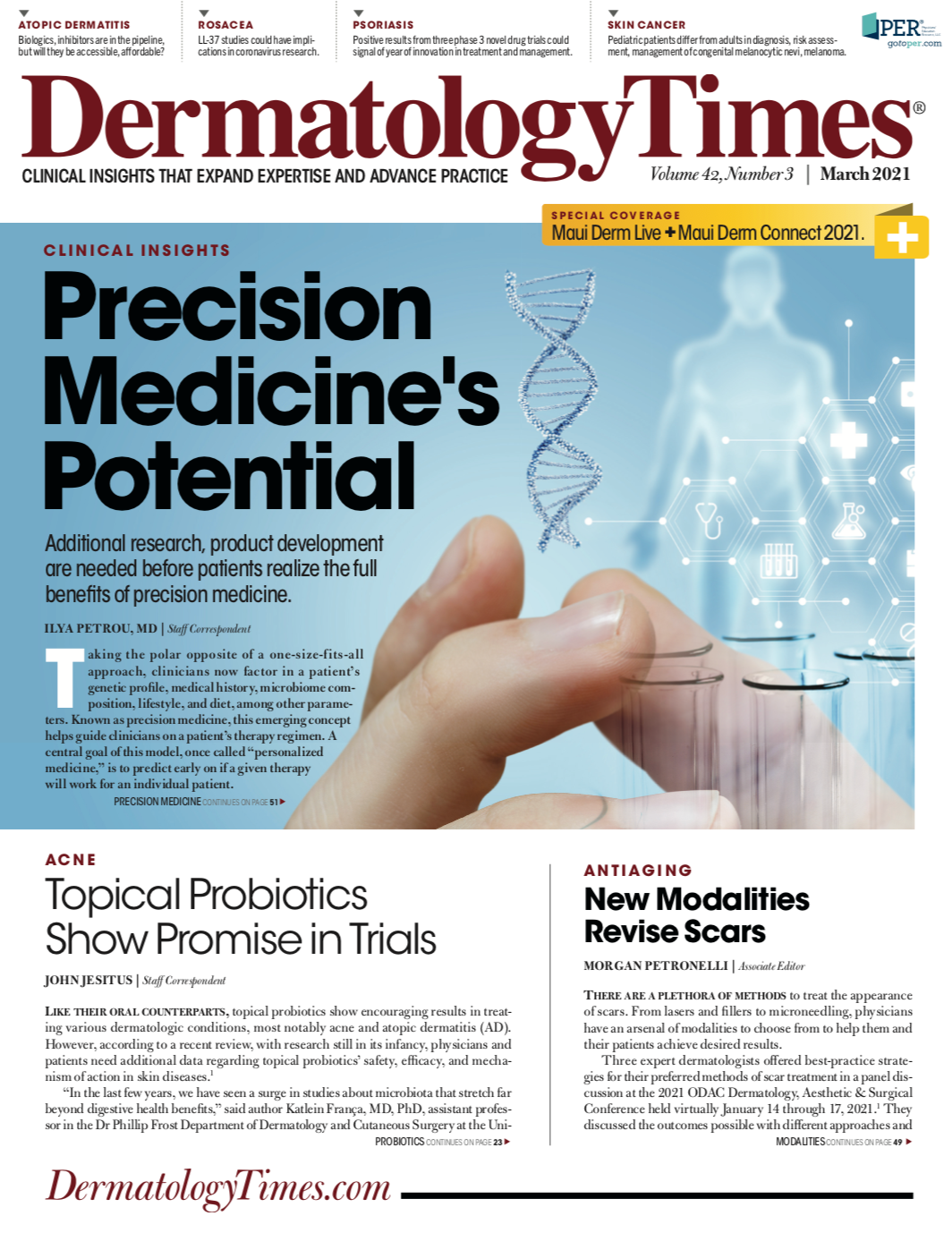
Newsletter
Like what you’re reading? Subscribe to Dermatology Times for weekly updates on therapies, innovations, and real-world practice tips.



